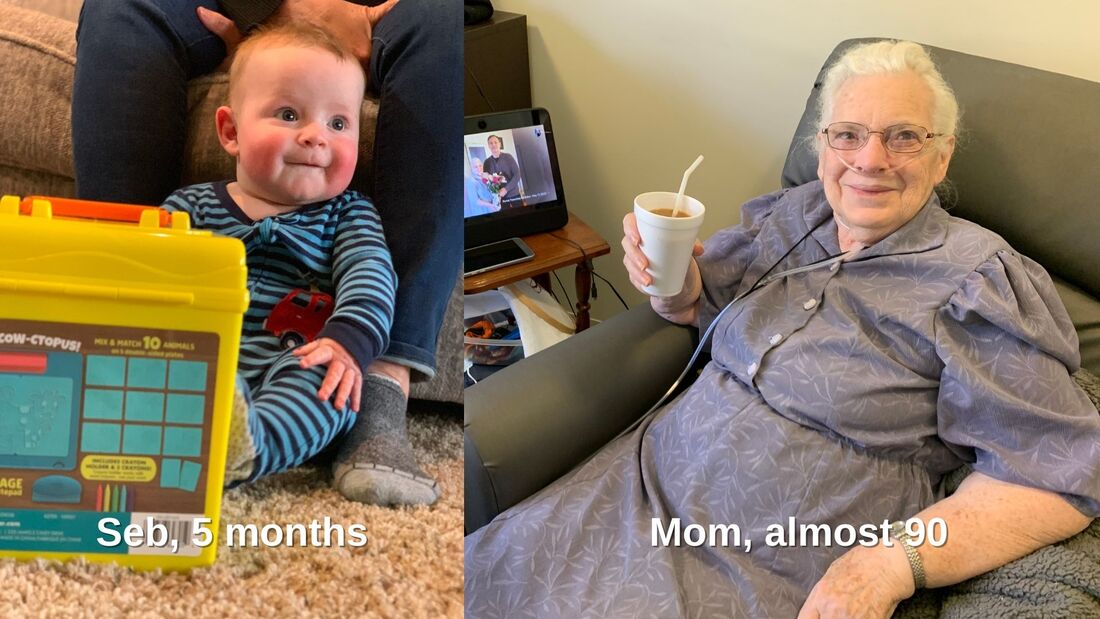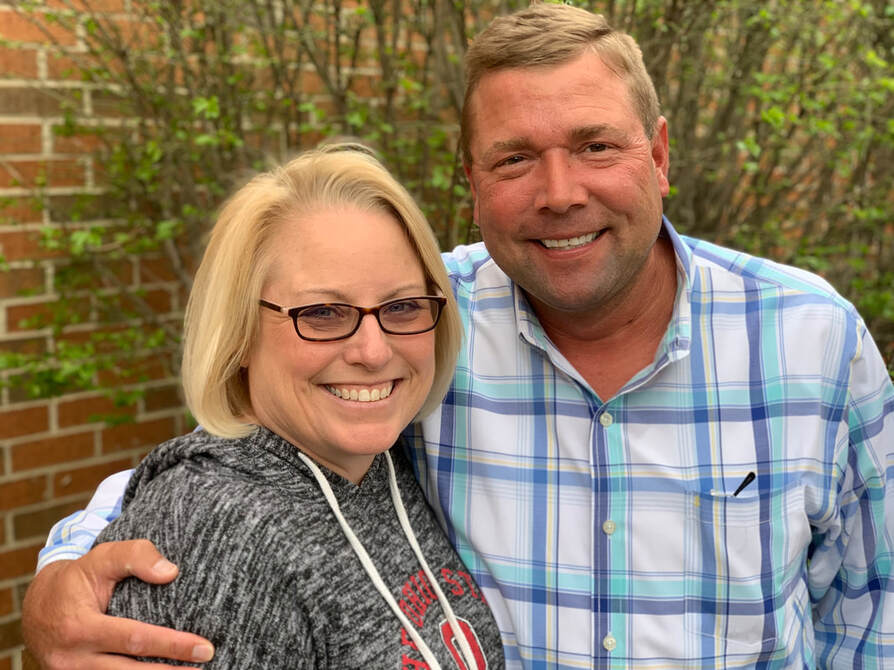|
By: Hollie Kowalski
Encompass Outreach Coordinator If you are anything like me, you started 2023 with a short list of big goals, maybe a resolution or two, much anticipation about a fresh start going into the new year, a bit melancholy about the quick passing of time and some feelings of disappointment over the setbacks and unmet expectations of the year prior. As we conclude this year, I’m choosing to focus on finishing well in preparation for a fabulous start to 2024. I invite you to join me! I believe a few great ways we can end the year well are...
0 Comments
The theme for August posts will be Finances/Money in Marriage, which seems to be a common issue between spouses.
By Lavern Nissley Encompass Executive Director "Money is the root of all evil", right? Wrong. It is the LOVE of money that creates problems. Ronda and I have watched this play out dozens of times on Dateline, the NBC show of 31 seasons that specializes in "compelling mysteries, powerful documentaries, and in-depth investigations." Typically, one or both partners are on a trajectory that has them loving money or pursuing sex outside of the relationship and ending in murder. But marriage and money CAN go together well, provided that the following tips are followed. If implemented, we can almost guarantee that you won't end up on Dateline! By: Joe Kowalski
Owner/CEO Empowered Community Services Most everyone can remember the panic, sudden jolt, and jarring pain of hitting the ground after their friend jumped off the teeter totter when we were kids. Or that time when you were in a hurry to get home with the groceries. You’re late, it’s raining, and instead of making three trips into the house with the groceries in the rain, you try to carry all 37 bags at one time, only to slip on the pavement sending a week’s worth of groceries all over the garage floor. What about this one? You are up against a deadline at work, going on 4 hours of sleep and you get a call at 5:30p from your spouse demanding “where are you?” With everything going on, you forgot to update your calendar with the kids’ recital that you are now going to miss. These lessons on gravity, imbalance, and regret are hard to forget. Unbalanced objects, whether they be playground equipment, people, or the expectations of others, will always fall. My wife and I have four children (3 high schoolers still at home,) a new grandson, 3 dogs, and I run my own small business. The demands on my time are many and balance becomes more and more difficult to maintain. By my own admission, I have a lot of work to do when it comes to balance in my life, but the following are a few pieces of advice I’ve come to cherish on this exceedingly difficult subject. By Ronda Nissley
Encompass Co-director There is no shortage of resources available to teach us how to parent each phase of childhood from infants and toddlers to tweens and teens. But the plethora of guidance slows to a trickle when it comes to navigating our relationship with our adult kids. At what point do we stop “parenting” – when they head off to college? When they move out of the house? Or maybe when they get married or have their first child. Our team at Encompass all agree that as our children transition into adulthood, our roles as parents do and should change.
Till death do us part. Those are the vows that we hear at weddings. But what do they really mean to each of us? We get married, have families, create memories, and hardly ever give that simple phrase another thought. Until the day comes that a doctor tells us devastating news, or a tragic accident happens that is beyond imaginable.
By: Hollie Kowalski, Encompass Outreach Coordinator
At first, I thought it had to be an error. After triple checking my planner, I happily accepted it as our reality. A whole day off! No events, no appointments, no practices, no rushing! WOOHOO!! But, THEN my mind immediately goes to my to-do list: order groceries, hand wash the delicates, clean the bathroom, prepare a lesson for my small group, start planning next weeks schedule, shop for Easter baskets… Ugh! (Insert hand over face emoji here.) My brain needs an “off” switch! By Lavern Nissley
Encompass Executive Director The term "new" sparks different responses, doesn't it? For some, "new" is associated with a freshly purchased item that is going to make life soooo very much better. For others, "new" is something that requires major adapting to yet another change. Which are you? And how can you best navigate the two sides of new? By Ronda Nissley
Encompass Co-director By now, you may have heard the term “quiet quitting” in relationship to employment. If you haven’t, this is when an employee decides to do “just enough to get by” – no extra effort, no striving for excellence, and no emotional buy-in to the mission and purpose of their employer. This is justified by our desire for work/life balance and the sense that we don’t owe our employer anything but to do the job we’ve been hired to do. Personally, I’m very curious how this will work long-term – for the employee as well as the employer. By: Abby Glaser, Community Advocate January means many of us are feeling the pressure to set resolutions! We begin each year setting lofty, vague and often unattainable goals for ourselves that end up failing by the time the Superbowl airs! But what if we flipped the script and instead of setting goals for new things to do we set an anti-resolution: a commitment to stop doing something. You might be thinking that’s what you always do…
I’m gonna work out every day. I’m gonna write in my journal every day. I’m gonna stop smoking. But these are all new goals to achieve and can often turn from inspiring to overwhelming quickly. An anti-resolution is ultimately identifying the things that need to change in your life and stopping the behavior that no longer serves you. Here are a few to consider in 2022: 1. Stop saying ‘Yes’. If you find yourself regularly overwhelmed, overly busy and exhausted this may be one you need to practice. One rule that has helped me in this area is the reminder that every ‘yes’ I give is a ‘no’ to something else. So anytime I’m asked to do something I think through what thing I would be saying no to and weigh if it’s worth it. For example: if I’m asked to join a committee that meets weekly, I’m saying ‘no’ to a minimum of four dinners a month with my family. Sometimes the answer will still be yes but it’s a better-informed yes. By Lisa Carnegis After 23 years of marriage (31 if you count dating), you’d think we’d be experts at relationships. At least that’s what we thought.
For the majority of our marriage, our communication with one another suffered. This was long enough for patterns and habits to set in. |
HostsDr. David Marine and Theresa Mabry are Co-Directors of Encompass since June 1, 2024. TOPICS
All
Archives
July 2024
|
FIND IT QUICKLY |
STAY CONNECTEDOFFICE HOURSMON 9a-2p
TUE 9a-2p WED 9a-2p THU 9a-2p Other hours by appointment VISIT US616 N. Limestone St. | Springfield, OH
|
Funding is provided by Clark County Job and Family Services, Charles L. Shor Foundation, Nehemiah Foundation, Springfield Foundation, Turner Foundation, and private donations and fees.
Program content is the sole responsibility of Encompass Connection Center and does not necessarily represent the views of the funders.
Encompass Connection Center services are provided to all eligible persons on a non-discriminatory basis. Encompass Connection Center complies with all applicable laws and regulations concerning discrimination does not discriminate on the basis of the potential participant's race, gender, gender orientation, age, disability or religion.
Registered 501(c)(3). EIN: 37-1485217
Program content is the sole responsibility of Encompass Connection Center and does not necessarily represent the views of the funders.
Encompass Connection Center services are provided to all eligible persons on a non-discriminatory basis. Encompass Connection Center complies with all applicable laws and regulations concerning discrimination does not discriminate on the basis of the potential participant's race, gender, gender orientation, age, disability or religion.
Registered 501(c)(3). EIN: 37-1485217












